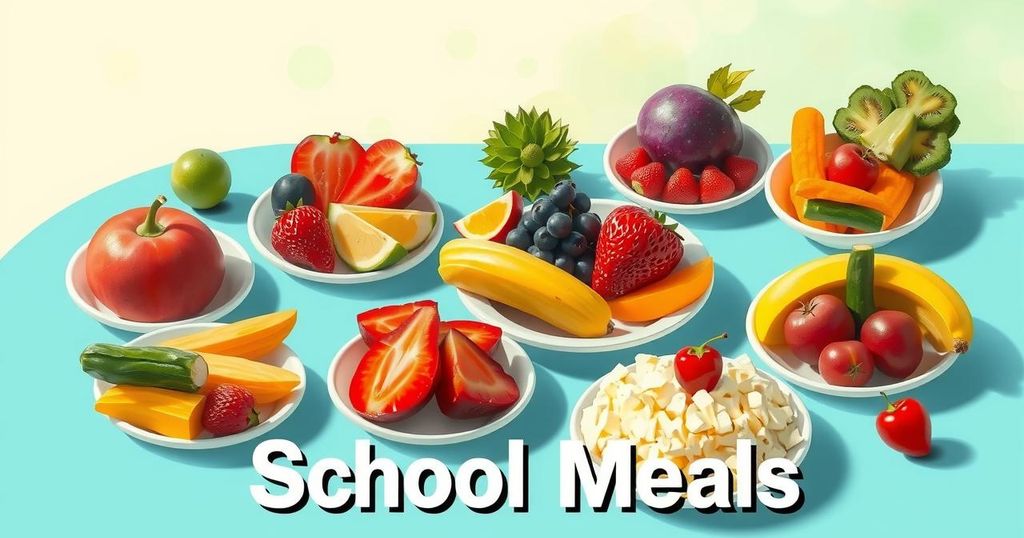Kenya’s school feeding debate has intensified with President Ruto’s pledge for a chapo-making machine. While the initiative aims to support child nutrition, it raises critiques regarding dependency and neglect of underlying issues like poverty and educational funding, underscoring a need for sustainable livelihoods.
Recent events in Kenya highlight a burgeoning debate surrounding President William Ruto’s commitment to supply a chapo-making machine to boost Governor Johnson Sakaja’s school feeding program. This initiative has elicited mixed reactions, prompting some to humorously label the president as “El Chapo.” The discourse surrounding food in Kenya, particularly chapati (chapo), reflects deeper social meanings rooted in cultural practices and values.
Chapo is deeply esteemed in Kenyan culture, often associated with special occasions and social status. Its preparation is an event that encourages social interaction, where the sharing of chapo among families promotes community bonds. This tradition underscores not just nourishment, but a sense of generosity, friendship, and social cohesion that holds significance within neighborhoods.
Currently, chapo symbolizes hard work, particularly among construction laborers (mjengo), serving as a rewarding meal after a long day. It signifies dignity and the satisfaction of small indulgences, illustrating the impact of labor and effort on personal fulfillment and social identity. Thus, the president’s initiative resonates with many as it addresses the nutritional needs of children, especially in impoverished areas.
Nonetheless, the limited focus on chapo as a school meal may obscure more pressing issues, such as the underlying causes of food insecurity and poverty affecting families. While the introduction of chapo in schools appears beneficial, it does not empower families with the means to attain balanced diets at home, perpetuating a dependency cycle instead.
The broader implications of the school feeding program raise concerns about sustainable solutions. Counties in Kenya are responsible for funding Early Childhood Development (ECD) programs, yet many remain inadequately supported, pushing parents toward pricier private education options. Prioritizing a chapo machine over addressing these systemic education and funding lapses misaligns with the essential needs of the community.
In essence, the chapo initiative reflects not merely a hunger solution but a challenge to the government’s duty to foster economic opportunities. Rather than merely providing short-term relief through school meals, there is a pressing need for mechanisms that promote economic self-reliance. In doing so, chapo may evolve from a symbol of aspiration to one of genuine sustainable progress.
The recent initiative to introduce chapo-making machines in Kenyan schools has sparked vital discussions on food security and socio-economic issues. Although it aims to address immediate nutritional needs, it overlooks deeper systemic challenges such as poverty and educational funding. Without addressing these root causes, reliance on school meals can perpetuate a cycle of dependency, thus emphasizing the need for sustainable solutions that ensure economic self-sufficiency and empowerment for families.
Original Source: www.capitalfm.co.ke






